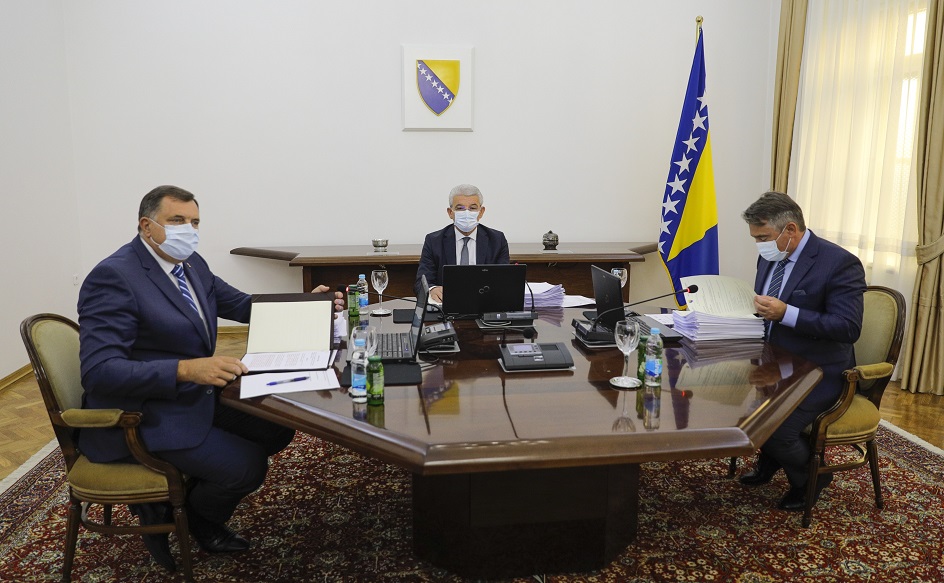Presidency rejects Dodik's request for moment of silence for Momcilo Krajisnik

According to the Bosniak member of the tripartite Presidency, his Serb colleague in the institution asked for a minute of silence to be observed for the late convicted Bosnian Serb war criminal Momcilo Krajisnik at the beginning of a Presidency session on Thursday but the request was rejected.
Krajisnik, who was the first speaker of the National Assembly of Bosnia’s Serb-majority Republika Srpska (RS) entity, was convicted by the International Criminal Tribunal for the Former Yugoslavia (ICTY) for crimes against humanity. He died on Tuesday due to COVID-19.
While victims’ associations in Bosnia condemned the role he played during the 1992-1995 war, Bosnian Serb Presidency member, Milorad Dodik, praised him as a “true patriot.”
“The session today began with Dodik asking for a minute of silence. I told him that this was a provocation and that we are talking about a person who was sentenced to a long prison sentence for the most serious crimes against humanity by the Hague Tribunal and that I refuse,” Bosniak member of the Presidency, Sefik Dzaferovic, said.
“If anyone deserves to be respected then it’s the victims of crime, not the criminals," he said, adding that Dodik requested that there should be a vote on the matter.
“Such a decision was not made and this didn’t happen today. I request that we have as few of these situations as possible,” he said, adding that he is aware Dodik had the right to make the request as a Presidency member.
Krajisnik was in 2006 sentenced to 27 years in prison for crimes against humanity, including extermination, murder, persecution, deportation, and forced transfer. He was acquitted of murder as a war crime, genocide, and complicity in genocide.
The judges of the International Criminal Tribunal for the former Yugoslavia (ICTY) found that Krajisnik was part of a joint criminal enterprise which carried out the extermination, murder, persecution and deportation of non-Serbs during the 1992 - 1995 Bosnian war.
He was acquitted of genocide or complicity in genocide because the court had found no evidence of a genocidal intent on his part to destroy in full or part ethnic or religious communities. The charges of murder and extermination were dropped in 2009 and the sentence was reduced to 20 years.
The ICTY judges found that while there was evidence that crimes committed in Bosnia constituted the criminal act of genocide, they did not establish that the accused possessed genocidal intent or was part of a criminal enterprise that had such an intent.
Kakvo je tvoje mišljenje o ovome?
Učestvuj u diskusiji ili pročitaj komentare





 Srbija
Srbija
 Hrvatska
Hrvatska
 Slovenija
Slovenija







